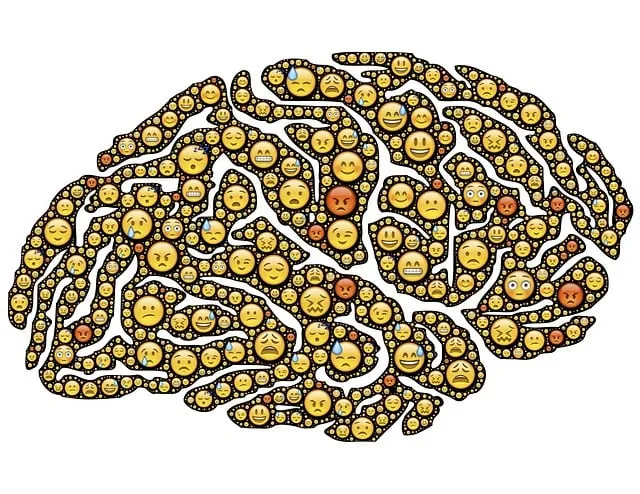In today's diverse healthcare landscape, particularly at facilities like the Castle Rock Kaiser Permanente Mental Health Access Center, cultural competency is paramount. This involves understanding and respecting cultural differences, which improves patient care and outcomes by addressing unique health beliefs, practices, and communication styles. The center exemplifies best practices through comprehensive training, community involvement, and programs tailored to diverse mental healthcare needs. Effective training includes education on cultural sensitivity, bias challenges, trauma support services, and mental wellness coaching, leading to improved access, outcomes, and patient experiences. Success is measured using both quantitative (surveys, feedback) and qualitative (focus groups, interviews) methods to refine programs continually.
Cultural competency training is an essential aspect of modern healthcare, ensuring providers can deliver effective care to a diverse range of patients. This article explores this critical topic, highlighting the success of the Castle Rock Kaiser Permanente Mental Health Access Center as a model for training programs. We’ll delve into key components, evaluation methods, and the long-term benefits of such initiatives. Understanding cultural competency is no longer an option but a necessity, especially in light of diverse patient populations.
- Understanding Cultural Competency in Healthcare: A Necessity in Modern Practice
- The Castle Rock Kaiser Permanente Mental Health Access Center: A Model for Training
- Key Components of Effective Cultural Competency Training Programs
- Measuring Success: Evaluating the Impact and Long-term Benefits of Training
Understanding Cultural Competency in Healthcare: A Necessity in Modern Practice

In today’s diverse healthcare landscape, cultural competency is no longer an optional aspect but a necessity for all healthcare providers. At facilities like the Castle Rock Kaiser Permanente Mental Health Access Center, understanding and respecting cultural differences can significantly enhance patient care and outcomes. Cultural competency involves recognizing and appreciating the impact of culture on health beliefs, practices, and communication styles. It equips healthcare providers with the skills to deliver personalized, inclusive services that cater to patients from various ethnic, racial, and social backgrounds.
The importance of this training cannot be overstated, especially when addressing mental health concerns. For instance, Self-Awareness Exercises can help healthcare providers recognize unconscious biases that might influence their interactions with patients. Mental Health Awareness is crucial in navigating cultural barriers to treatment, ensuring that all individuals have equal access to quality care. Through comprehensive Healthcare Provider Cultural Competency Training, professionals at the Castle Rock Kaiser Permanente Mental Health Access Center are empowered to foster trust, improve patient engagement, and ultimately, provide more effective treatment plans tailored to each patient’s unique cultural needs.
The Castle Rock Kaiser Permanente Mental Health Access Center: A Model for Training

The Castle Rock Kaiser Permanente Mental Health Access Center serves as a shining example of how healthcare organizations can prioritize cultural competency training. This center has successfully integrated various innovative programs aimed at improving mental health services, especially for diverse communities. By offering tailored support and resources, it addresses the unique challenges faced by different cultural groups, ensuring equitable access to care.
The model employed by Castle Rock Kaiser Permanente focuses on comprehensive training for staff, including burnout prevention strategies and effective communication techniques. They actively involve community members in the development of public awareness campaigns, ensuring that educational initiatives resonate with diverse populations. Moreover, the center emphasizes stress management practices, recognizing their role in both individual well-being and overall mental health outcomes within diverse communities.
Key Components of Effective Cultural Competency Training Programs

Effective cultural competency training programs for healthcare providers are multifaceted and crucial in ensuring quality mental health care. One key component is Cultural Sensitivity in Mental Healthcare Practice, which involves understanding and appreciating diverse cultural beliefs, values, and practices related to mental wellness. Training should encompass education on common cultural misunderstandings and biases, encouraging practitioners to challenge their own assumptions and adopt a more inclusive approach.
At the Castle Rock Kaiser Permanente Mental Health Access Center, for instance, initiatives focus on both Trauma Support Services and Mental Wellness Coaching Programs Development. These programs not only equip providers with tools to address cultural barriers but also enhance their ability to offer empathetic, effective support tailored to individual patient needs. By integrating these key components, healthcare training programs contribute significantly to improving access and outcomes in mental healthcare, as seen in the positive impacts on patient experiences at centers like Castle Rock Kaiser Permanente.
Measuring Success: Evaluating the Impact and Long-term Benefits of Training

Measuring the success of cultural competency training is paramount to understanding its true impact and ensuring long-term benefits. At Castle Rock Kaiser Permanente Mental Health Access Center, evaluating the effectiveness of such programs involves a multifaceted approach. This includes quantitative methods like surveys and feedback forms to gauge knowledge retention and attitude shifts among healthcare providers. By assessing changes in clinical practices, patient satisfaction scores, and diversity in treatment approaches, the center can demonstrate tangible improvements resulting from training initiatives.
Qualitative assessments, such as focus groups and interviews, provide deeper insights into the personal growth and professional transformations experienced by participants. These strategies foster open discussions about empathy-building techniques like compassion cultivation practices and burnout prevention strategies for healthcare providers, which are essential components of cultural competency training. Ultimately, tracking these metrics helps in refining training programs to better meet the evolving needs of both healthcare providers and the diverse communities they serve, such as those accessed through Castle Rock Kaiser Permanente resources.
Cultural competency training in healthcare, as exemplified by the successful programs at the Castle Rock Kaiser Permanente Mental Health Access Center, is no longer a choice but an indispensable necessity. By focusing on key components such as awareness, knowledge, and skills development, these initiatives empower healthcare providers to deliver more personalized and effective care to a diverse range of patients. Measuring success through evaluation ensures that these training programs not only improve patient outcomes but also foster inclusive and respectful healthcare environments. As we navigate the complex landscape of modern healthcare, investing in cultural competency is a game-changer, ensuring that everyone receives the quality mental health access they deserve.


